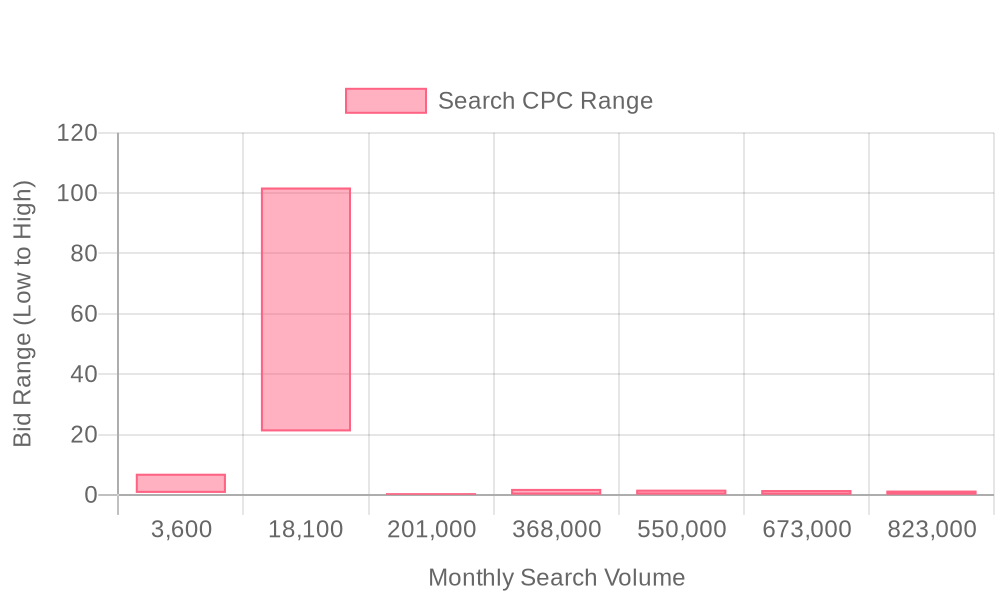
Supercharge your lead generation with a FREE Google Ads audit - no strings attached! See how you can generate more and higher quality leads
Get My Free Google Ads AuditFree consultation

No commitment
Supercharge your lead generation with a FREE LinkedIn Ads audit - no strings attached! See how you can generate more and higher quality leads
Get My Free Google Ads AuditFree consultation

No commitment
Supercharge your lead generation with a FREE Meta Ads audit - no strings attached! See how you can generate more and higher quality leads
Get My Free Google Ads AuditGet My Free LinkedIn Ads AuditGet My Free Meta Ads AuditFree consultation

No commitment
Supercharge your lead generation with a FREE Google Ads audit - no strings attached! See how you can generate more and higher quality leads
Get My Free Google Ads AuditFree consultation

No commitment
In the realm of real estate, attracting qualified leads is a multifaceted challenge that requires a strategic approach. Google Ads, when integrated into a broader digital marketing strategy, provides real estate agents with the tools to target high-intent prospects precisely when they're searching for real estate services or properties. The power of Google Ads lies in its ability to combine immediate lead generation with long-term brand awareness, effectively reinforcing other marketing channels like social media, email, and traditional real estate listings. However, real estate professionals often face the challenge of missing out on high-value prospects, who aren’t tracked in the CRM, leading to lost opportunities. Modern solutions now allow businesses to identify these anonymous visitors, ensuring that ad spend is optimized to target real decision-makers. For real estate professionals, Google Ads unlocks opportunities to:

A strategic, data-driven approach to Google Ads for real estate sales transforms outreach by enabling marketers to prioritize qualified buyers and sellers over general traffic. By leveraging advanced analytics and unified data, teams can identify which prospects are most likely to convert, allocating spend for optimal lead generation and higher revenue impact.
Developing a successful Google Ads strategy begins with aligning campaign objectives to the broader real estate marketing plan. This means mapping out target markets, buyer personas, and sales cycles, then using intent signals and behavioral data to shape every stage of the customer journey. Integrating these insights allows marketers to anticipate trends, proactively segment audiences, and build campaigns that reach prospects just as they begin their search for properties or services.
Keyword selection and audience targeting are central to effective real estate lead generation. It is critical to move beyond basic demographic filters and instead build dynamic, intent-based audiences that reflect both in-market behavior and real-time engagement. For a deeper dive into optimizing Google Ads for real estate, explore this comprehensive guide to Google Ads for real estate marketing success.
Landing pages and creative assets should be meticulously designed to align with the specific needs of potential buyers and sellers. Each click from a Google Ads campaign must lead to a personalized, high-conversion experience—whether that means property showcases, instant valuation tools, or appointment scheduling modules. By connecting these online touchpoints with offline sales activities, marketers can track every interaction, measure true ROI, and continuously refine their real estate sales techniques for maximum effectiveness.
Ongoing optimization is essential for real estate digital marketing success. With unified campaign data, marketers can monitor performance in real time, identify high-converting segments, and shift budgets toward the most valuable accounts. Enhanced conversion tracking links both digital and offline deal activity, providing full-funnel attribution and actionable insights to boost overall marketing efficiency.
Integrating Google Ads efforts across multiple channels creates a seamless journey for prospects, guiding them from initial research to final transaction. When advanced tools are used to import high-intent website visitors into Google Ads customer match lists, marketers ensure that every dollar spent on PPC for real estate is focused on decision-makers ready to act. To experience the benefits firsthand, get started for free with Sona. This cohesive strategy empowers real estate marketers, agents, and firms to generate more qualified leads, drive higher conversion rates, and achieve measurable growth in even the most competitive markets.

Real estate professionals operate in a fast-paced, high-stakes market where timing and targeting are critical to closing deals. Google Ads for real estate sales provides the ability to engage buyers and sellers at the precise moment they start searching, ensuring that marketing efforts are aligned with real intent and immediate demand.

Leveraging these campaign types with unified data and intent insights transforms real estate lead generation, making your PPC for real estate more efficient and impactful at every stage of the buyer journey. If you're ready to put these strategies into action, get started for free with Sona today.

B2B revenue teams seeking to maximize Google Ads for Real Estate Sales must look beyond surface-level keywords and broad targeting to discover untapped market segments. High-performing teams consistently identify actionable growth opportunities by aligning their advertising strategy with precise buyer intent signals, unified data, and personalized engagement tactics.
Disconnected intent signals across platforms can dilute your conversion rates and inflate acquisition costs. Real estate B2B teams benefit from integrated data systems that unify online and offline engagement, CRM activity, and website visits. This integration ensures that every marketing touchpoint reinforces the next, delivering a seamless, high-converting experience from first click to closed deal. To experience this kind of streamlined pipeline, get started for free with Sona.

Effective audience segmentation in real estate is essential to maximize the impact of Google Ads for Real Estate Sales. By aligning each segment with specific sales cycle stages, professionals can target messaging, allocate budgets, and optimize conversion paths for every buyer and seller persona involved in the transaction. For additional marketing analytics best practices, visit our blog.
By adopting these segmentation strategies, real estate professionals gain the ability to identify high-intent leads, personalize engagement, and track every stage of the sales process—transforming Google Ads from a broad acquisition channel into a precision tool for real estate lead generation and conversion. Get started for free with Sona.

| Industry | Keyword | Monthly Search Volume | Competition Level | Low Bid | High Bid |
| Real Estate Sales | real estate sales | 3600 | LOW | 0.67 | 6.99 |
| Real Estate Sales | sell my house fast | 18100 | LOW | 21.07 | 101.83 |
| Real Estate Sales | land for sale near me | 201000 | MEDIUM | 0.08 | 0.56 |
| Real Estate Sales | homes for sale | 368000 | MEDIUM | 0.12 | 1.97 |
| Real Estate Sales | houses for sale | 550000 | MEDIUM | 0.13 | 1.71 |
| Real Estate Sales | homes for sale near me | 673000 | MEDIUM | 0.09 | 1.6 |
| Real Estate Sales | houses for sale near me | 823000 | MEDIUM | 0.1 | 1.39 |
Effective keyword strategy remains central to successful Google Ads for Real Estate Sales. High-intent keywords such as "houses for sale near me," "luxury condos downtown," or "real estate agents in [city]" capture buyers and sellers actively seeking properties or representation. These terms consistently attract users deeper in the decision-making process, increasing the likelihood of lead conversion and supporting real estate lead generation at scale.
Local modifiers and niche long-tail keywords further refine targeting. Combining neighborhood names, property types, and transaction intent—like "3-bedroom homes in Greenpoint" or "buy loft apartment in SoMa"—reduces wasted spend by focusing on motivated prospects within defined geographic areas. These specific keyword structures help real estate marketing teams align Google Ads targeting with actual service coverage and pipeline priorities, resulting in more qualified inquiries and improved Google Ads ROI.
Filtering out irrelevant traffic is equally critical for real estate PPC efficiency. Building robust negative keyword lists prevents ads from showing for searches unrelated to buying or selling, such as "apartment rentals" or "property management jobs." This protective layer conserves budget and sharpens campaign relevance, ensuring only high-value impressions reach the sales team. When negative keywords are applied in tandem with intent-driven targeting, campaigns achieve higher Quality Scores and lower cost per lead.
Campaign structures should map keywords to buyer stages and locations. For example, segmenting ad groups into "New Listings Uptown" or "Move-In Ready Homes Suburbs" allows for messaging tailored to users’ current needs and their stage in the sales funnel. This approach, especially when integrated with advanced audience solutions, lets marketers dynamically adjust spend and creative assets as user behavior shifts—automatically prioritizing accounts with the highest likelihood of closing.
Custom intent audiences take Google Ads for Real Estate Sales to the next level. By segmenting users as "Hot" (high-intent, recently engaged) or "Warm" (early-stage, browsing), based on browsing and CRM signals, revenue teams can allocate budget and creative resources more efficiently. When these segments are enriched with real-time behavioral and firmographic data, marketers can precisely identify which visitors represent the best opportunities, enabling real estate digital marketing initiatives to move beyond anonymous clicks and accelerate the path from impression to closed deal. Ready to optimize your audience targeting and campaign results? Get started for free with Sona.
Effective real estate advertising starts with well-crafted keyword lists tailored to your service offerings, such as housing sales or apartment leases. Prioritize geographic keywords and "near me" terms to capture local, high-intent buyers or renters ready to take action. Integrate negative keywords to filter out unqualified leads, ensuring your Google Ads budget is invested only in prospects with genuine purchasing interest. Real estate teams leveraging Sona Identification can further refine these lists by identifying which companies and buyers are repeatedly engaging with property pages or mortgage calculators, making keyword selection based on actual in-market activity. Dynamic audience updates allow targeting to shift in real time as new high-value leads emerge, driving more efficient PPC for real estate campaigns.
Ad copy is your digital handshake with each prospective client, making clarity and relevance essential. Headlines should showcase certifications, local expertise, or unique selling points, such as "Certified Luxury Specialist – Downtown Lofts" or "Free Virtual Home Tours This Week." Incentivize engagement by offering time-limited consultations or online walk-throughs, which increase click-through rates and lead generation. Use ad extensions to add calls, location maps, or additional service links, expanding your ad’s footprint and driving more qualified traffic. When your ad platforms sync with real-time CRM data, messaging can be adjusted on the fly to reflect a prospect’s stage in the buying journey, ensuring every impression is contextually relevant and increasing the odds of conversion.
A seamless post-click experience is crucial for converting paid traffic into sales conversations. Landing pages should mirror the ad’s promise, featuring hyperlocal content, property-specific details, and trust elements like testimonials or recent transaction badges. For real estate online marketing, integrating virtual tours and interactive maps can significantly boost engagement and time on page. Prioritize intuitive, mobile-friendly forms and clear calls-to-action to streamline the conversion process, reducing friction for leads whether they prefer to schedule a showing or request a personalized property report. Connecting your ad platform with advanced visitor identification tools enables granular attribution—capturing which landing page and campaign drove each high-value inquiry, even tracking offline conversions back to specific Google Ads strategies.
Ongoing optimization is the backbone of successful Google Ads for real estate. Monitor conversion points like lead forms, calls, and chat initiations, using smart bidding strategies that automatically adjust spend toward the highest-converting segments and geographic zones. Test variations in ad copy, creative assets, and landing page layouts to identify which combinations maximize engagement and ROI. Leverage real-time insights to inform broader marketing initiatives, such as shifting budget to areas with surging demand or updating ad messaging to address seasonal buyer concerns. AI-driven models pinpoint accounts most likely to convert in the near term, allowing revenue teams to prioritize outreach, unify data across platforms, and consistently improve real estate lead generation outcomes. Get started for free with Sona.
Expanding real estate sales presence requires a strategic approach anchored in advanced digital marketing and precision targeting. Leading teams are moving beyond generic outreach, leveraging granular data and tech-driven tactics to fuel more pipeline and close deals faster.
Effectively harnessing the power of Google Ads can transform your real estate sales strategy, turning online clicks into tangible leads and ultimately, closed deals. Navigating the complexities of digital advertising requires strategic insight and an adaptable approach, both of which are essential for thriving in today’s competitive real estate market.
Throughout this article, we've explored the unique challenges faced by real estate professionals and the key strategies that can elevate your Google Ads campaigns. From selecting the right keywords to optimizing ad copy and utilizing targeted landing pages, each step is crucial in maximizing your return on investment. These insights serve as a roadmap to not only attract potential buyers but also nurture them into loyal clients.
Imagine the possibilities when you implement these strategies, witnessing a significant boost in your visibility and engagement. By taking control of your digital presence, you're not just keeping pace with industry trends—you're setting yourself apart as a leader in the real estate market. Embrace this opportunity to redefine success in your sales efforts.
Take the first step towards revolutionizing your approach by experiencing our powerful platform. Start for free to unlock the full potential of your real estate business and see how these tools can seamlessly integrate into your growth strategy today.
Best practices for using Google Ads in real estate include aligning campaigns with your overall marketing plan, using intent signals and behavioral data to target audiences, constructing dynamic, intent-based audience segments, and designing personalized landing pages that cater to potential buyers and sellers.
The article does not specify an exact budget for Google Ads in real estate, but it emphasizes the importance of optimizing ad spend to target high-intent prospects and decision-makers, suggesting that budgets should be adaptable and focused on high-value opportunities.
Effective Google Ads types for real estate agents include search campaigns, display ads, video ads, remarketing, and ad extensions, each tailored to engage prospects at different stages of the buying journey.
Track the success of Google Ads campaigns for real estate by using unified campaign data to monitor performance, employing conversion tracking to link digital and offline activities, and adjusting strategies based on real-time insights and high-converting segments.
Yes, Google Ads is effective for generating real estate leads by targeting high-intent prospects, allowing for precise audience targeting, and supporting immediate lead generation combined with long-term brand awareness.
Join results-focused teams combining Sona Platform automation with advanced Google Ads strategies to scale lead generation

Connect your existing CRM

Free Account Enrichment

No setup fees
No commitment required

Free consultation

Get a custom Google Ads roadmap for your business
Join results-focused teams combining Sona Platform automation with advanced Meta Ads strategies to scale lead generation

Connect your existing CRM

Free Account Enrichment

No setup fees
No commitment required

Free consultation

Get a custom Google Ads roadmap for your business
Join results-focused teams combining Sona Platform automation with advanced LinkedIn Ads strategies to scale lead generation

Connect your existing CRM

Free Account Enrichment

No setup fees
No commitment required

Free consultation

Get a custom Google Ads roadmap for your business
Join results-focused teams using Sona Platform automation to activate unified sales and marketing data, maximize ROI on marketing investments, and drive measurable growth

Connect your existing CRM

Free Account Enrichment

No setup fees
No commitment required

Free consultation

Get a custom Google Ads roadmap for your business
Over 500+ auto detailing businesses trust our platform to grow their revenue
Join results-focused teams using Sona Platform automation to activate unified sales and marketing data, maximize ROI on marketing investments, and drive measurable growth

Connect your existing CRM

Free Account Enrichment

No setup fees
No commitment required

Free consultation

Get a custom Google Ads roadmap for your business
Over 500+ auto detailing businesses trust our platform to grow their revenue
Join results-focused teams using Sona Platform automation to activate unified sales and marketing data, maximize ROI on marketing investments, and drive measurable growth

Connect your existing CRM

Free Account Enrichment

No setup fees
No commitment required

Free consultation

Get a custom Google Ads roadmap for your business
Over 500+ auto detailing businesses trust our platform to grow their revenue
Our team of experts can implement your Google Ads campaigns, then show you how Sona helps you manage exceptional campaign performance and sales.
Schedule your FREE 15-minute strategy sessionOur team of experts can implement your Meta Ads campaigns, then show you how Sona helps you manage exceptional campaign performance and sales.
Schedule your FREE 15-minute strategy sessionOur team of experts can implement your LinkedIn Ads campaigns, then show you how Sona helps you manage exceptional campaign performance and sales.
Schedule your FREE 15-minute strategy sessionOur team of experts can help improve your demand generation strategy, and can show you how advanced attribution and data activation can help you realize more opportunities and improve sales performance.
Schedule your FREE 30-minute strategy sessionOur team of experts can help improve your demand generation strategy, and can show you how advanced attribution and data activation can help you realize more opportunities and improve sales performance.
Schedule your FREE 30-minute strategy sessionOur team of experts can help improve your demand generation strategy, and can show you how advanced attribution and data activation can help you realize more opportunities and improve sales performance.
Schedule your FREE 30-minute strategy sessionOur team of experts can help improve your demand generation strategy, and can show you how advanced attribution and data activation can help you realize more opportunities and improve sales performance.
Schedule your FREE 30-minute strategy session





Launch campaigns that generate qualified leads in 30 days or less.
